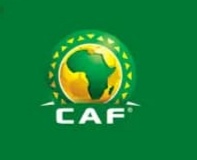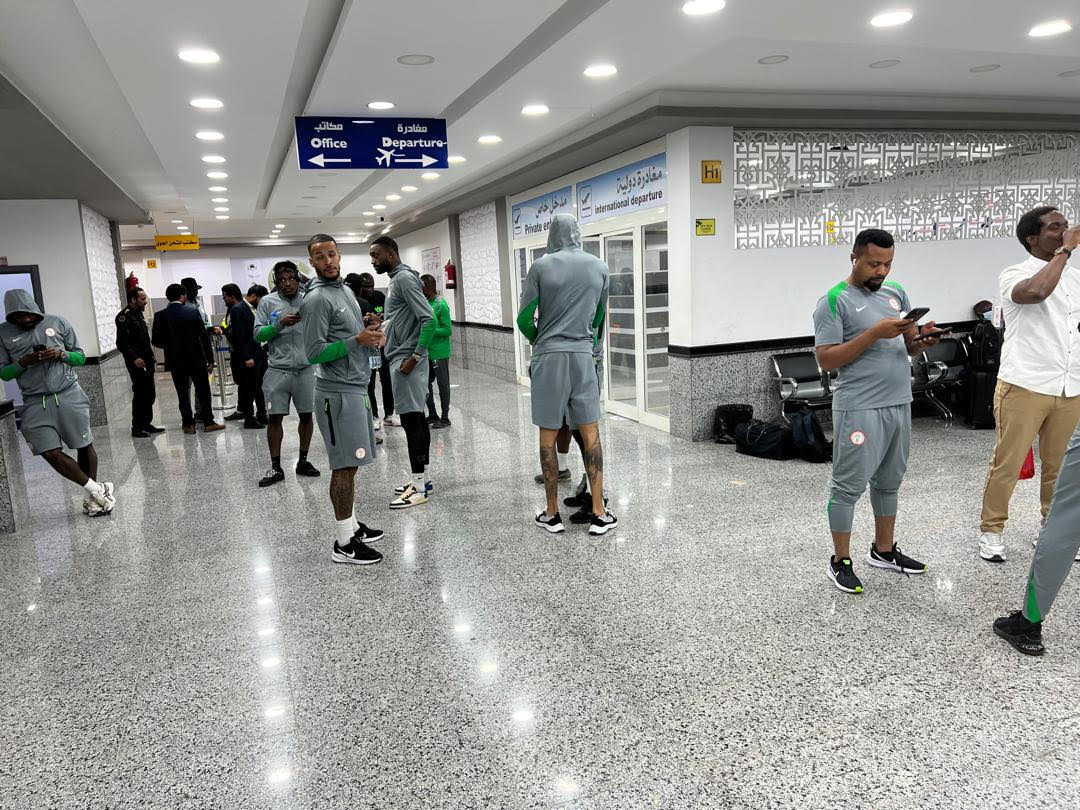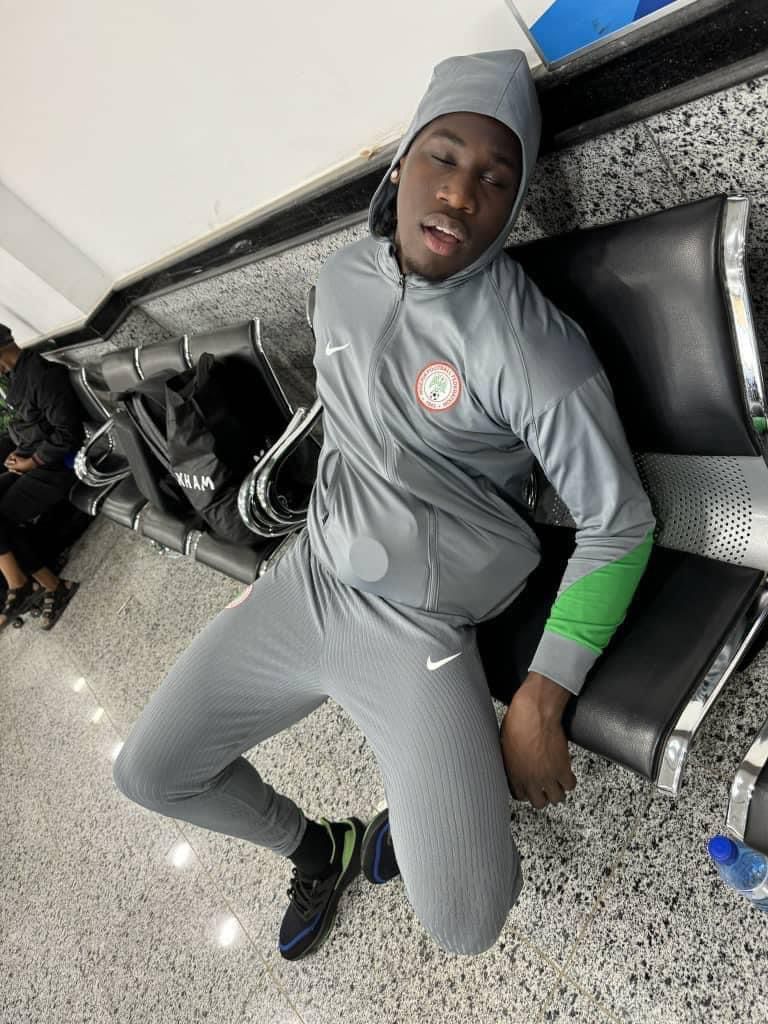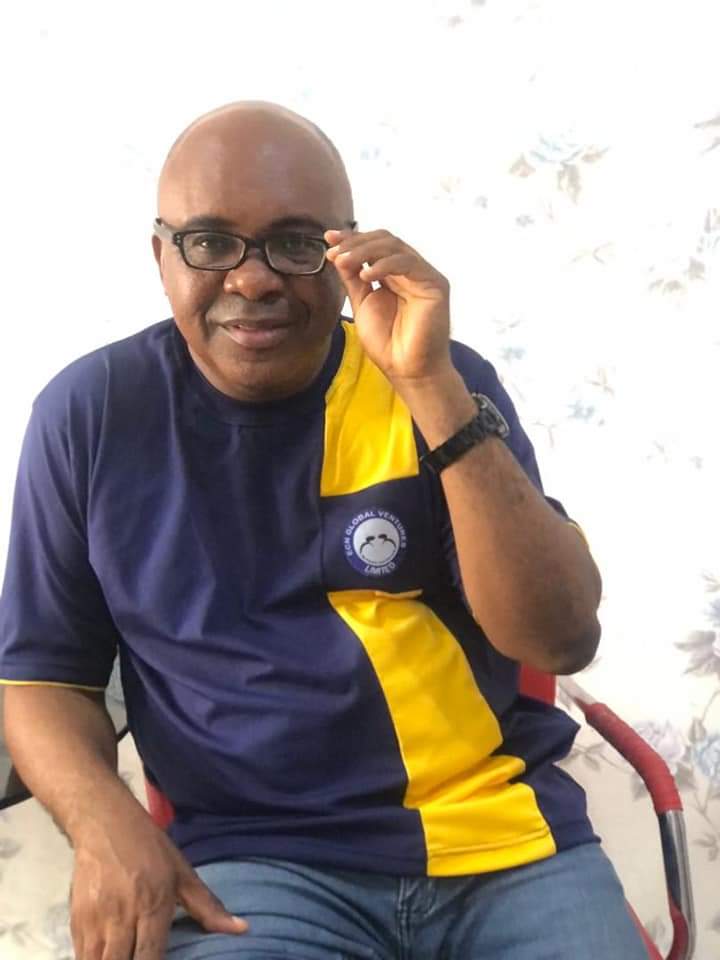The Libyan Debacle: CAF Integrity At Stake

What initially started as a beer palour talk by the Captain of the Libyan National team, Faisal Al-Badri, later turned to be a reality. He complained that they were abandoned by their guest, the Nigeria Football Federation when they played in Uyo, promising that they would surely revenge when the Nigerians come visiting them for the reversed fixture few days after.
In order not to allow the threat sank down, the NFF immediately came out with an explanation saying that the Libyans were the architect of their problems in that situation.
The Nigeria Football Federation rejected the claims of poor treatment on arrival in Nigeria by the captain of the Libya senior men national team. They insisted that the Libyan Football Federation created chaos for its own team, the Mediterranean Knights.
According to the NFF’s Assistant Director (Protocol), Emmanuel Ayanbunmi the Libya Federation only informed the NFF that its team was landing in Port Harcourt, and not Uyo, only three hours to the team’s arrival.
He said he spoke to the General Secretary of LFF, at length, and he never hinted that his team would be arriving on Tuesday (the following day). He only said he would get back to him but he never did.
Ayanbunmi said On Monday evening, someone sent as an advance party by the LFF called him to inform him that the team would be arriving on Tuesday by noon.He said they made all arrangements to receive the team in Uyo on arrival.
He said it was only an hour after the team was airborne that he was told that the delegation would be landing in Port Harcourt. A statement which disrupted so many of their protocols. They still managed to get approval from federal authorities to allow their plane fly to Uyo once they concluded immigration formalities in Port Harcourt. But, because of the additional cost they would incur from the charter company, they decided to travel from Port Harcourt to Uyo by road.”
Ayanbunmi added that the Libyan delegation jettisoned road transportation arrangements made for them by the NFF and instead hired buses on their own.
The Super Eagles set out for Libya on Sunday 13th October for the reversed fixture of the match, little did they envisaged what was awaiting for them.
The match which was slated for October 16, 2024, eventually turned out to be a debacle that has put the integrity of CAF, the Football ruling body in Africa at stake.
The Nigerian team arrived in Libya but faced unexpected challenges when their flight was diverted to Al Abraq Airport, a facility primarily used for hajj operations, rather than the intended Benghazi Airport. Upon landing, the team found themselves without access to basic necessities such as food and water, and no arrangements had been made for their transportation to the hotel, which was reported to be three hours away.
This lack of logistical support raised serious concerns among the players and officials, who felt abandoned by their hosts. While the Libyan Football Federation released a statement denying any wrongdoing, insisting that the diversion was due to routine air traffic control procedures, the damage was already done. The Nigerian delegation expressed outrage and frustration, leading to discussions that led to their withdrawal from the match.
The Nigeria government condemned the Inhuman act that was exhibited to Super Eagles and called on CAF to weigh its big stick on those found wanting in the incident.
The incident highlights significant issues within football governance, particularly in terms of logistical preparedness and communication among football associations. The failure to ensure that visiting teams are treated with dignity and respect may have led to the incident that is on the verge of tarnishing the reputation of beautiful game among the nations.
For the Libyan Football Federation, the lack of adequate reception for a visiting national team raises question about their ability to host international matches effectively at this point.
This incident may lead to stricter regulations and protocols for future matches, involving Libya, particularly as their regions is presently facing logistical challenges.
Though, the Libyan Football Federation came out to denied any involvement in the poor treatment experienced by Nigeria’s Super Eagles during their stay in the country.
In a statement, the Libya FA expressed concern about the situation, saying, “We regret any inconvenience caused, but it’s important to understand that such incidents can occur due to routine air traffic control protocols, security checks, or logistical challenges affecting international air travel. These situations are standard at airports worldwide, and while unfortunate, they are not uncommon.
They said they hold their Nigerian counterparts in the highest regard and wanted to clarify that the diversion of their flight was not intentional. They said there is no basis for accusing Libyan security teams or the Libyan Football Federation of orchestrating the incident. Saying that such actions contradict their values and principles.
“We reject any claims of foul play or sabotage. Just last week, our national team faced significant challenges upon arriving in Nigeria for an AFCON qualifier, yet we did not make public accusations or question the integrity of Nigerian authorities. Football unite nations, and we are dedicated to fostering fairness and mutual respect on and off the field"
They went on to boast that they take pride in the hospitality and their welcoming nature. "We prioritize treating all visiting teams, including our African brothers, with the respect and dignity they deserve. Hosting these events is an honor, and we strive to ensure all teams feel safe and respected as our guests. This commitment to equality and hospitality is central to our culture".
They pleaded that the misunderstanding be resolved with goodwill.
This impasse could change the landscape of football in Africa, emphasizing the need for a more robust support system for teams traveling for international competitions.
The impasse has broader implications for Nigeria-Libya relations. Historically, the relationship between the two nations has been influenced by various factors, including trade, migration, and regional stability. However, incidents like this can strain diplomatic ties, especially when they reinforce negative perceptions.
In the context of a growing narrative around Africa’s unity and cooperation, the treatment of the Super Eagles can be seen as a setback. Diplomatic fallout could result in reduced cooperation between Nigeria and Libya in various sectors, from economic partnerships to security initiatives. Furthermore, if not managed effectively, the incident could lead to a resurgence of anti-Libyan sentiment in Nigeria, affecting public perception and bilateral engagements.
For the Super Eagles, the implications extend beyond logistical challenges. The emotional and psychological impact on players cannot be understated. Being stranded without basic necessities can affect team morale, leading to anxiety and uncertainty about their upcoming match. Such circumstances could lead to poor performances on the field, which could have long-term implications for the team’s chances of qualifying for the AFCON.
In competitive sports, mental well-being is crucial for optimal performance. If players feel disrespected or undervalued, it can manifest in their gameplay, affecting both individual and team dynamics. Moreover, the narrative surrounding the incident could lead to negative media attention, further impacting the team’s focus and performance.
The media plays a crucial role in shaping public perception regarding international incidents in sports. Coverage of the Super Eagles’ plight has drawn attention to the challenges faced by teams traveling in Africa, amplifying calls for better treatment and infrastructure. Social media, in particular, has enabled fans and pundits to voice their opinions, putting additional pressure on both the Nigerian and Libyan football federations to address the situation.
Public sentiment can influence the actions of sports governing bodies, potentially prompting them to take a more proactive approach in ensuring that such incidents do not recur.
CAF on its own said it views the disturbing and unacceptable experiences of the Nigerian National Football Team (‘’Super Eagles’’) at an airport in Libya in a very serious light
CAF said it was contact with the Libyan and Nigerian authorities after it had been informed that the Nigerian National Football Team (‘’Super Eagles’’) and their technical team were stranded in disturbing conditions for several hours at an airport that they were allegedly instructed to land by the Libyan authorities.
They said that the matter has been referred to the CAF Disciplinary Board for investigation and appropriate action will be taken against those who violated the CAF Statutes and Regulations.
This is an important statement from CAF, but many are very skeptical about the outcome of the decision, considering CAF previous antecedents as it affects the North African countries. But, in this case, we are keeping our fingers crossed waiting for what CAF would say.





Write a Comment